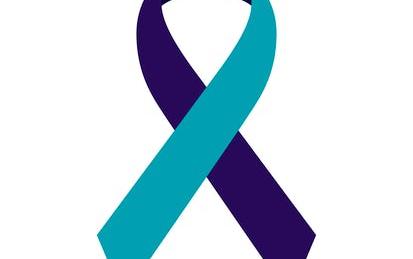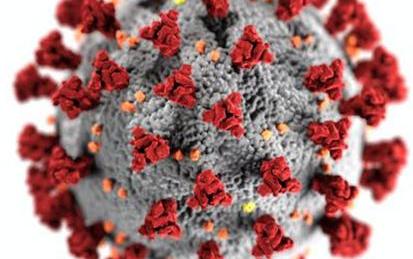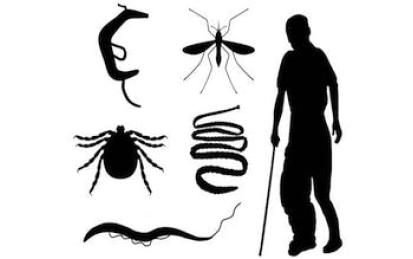

دوراتنا

Measuring Disease in Epidemiology
Epidemiological research is ubiquitous. Even if you don’t realise it, you come across epidemiological studies and the impact of their findings every single day. You have probably heard that obesity is increasing in high income countries or that malaria is killing millions of people in low income countries. It is common knowledge that smoking causes cancer and that physical activity is protective against heart disease. These facts may seem obvious today, but it took decades of epidemiological research to produce the necessary evidence.
-
Course by

-
 Self Paced
Self Paced
-
 10 ساعات
10 ساعات
-
 الإنجليزية
الإنجليزية

Major Depression in the Population: A Public Health Approach
Public Mental Health is the application of the principles of medicine and social science to prevent the occurrence of mental and behavioral disorders and to promote mental health of the population. This course illustrates the principles of public health applied to depressive disorder, including principles of epidemiology, transcultural psychiatry, health services research, and prevention. It is predicted that by 2020 depressive disorder will be the most important cause of disease burden in the entire world!
-
Course by

-
 Self Paced
Self Paced
-
 12 ساعات
12 ساعات
-
 الإنجليزية
الإنجليزية

Metagenomics applied to surveillance of pathogens and antimicrobial resistance
The field of metagenomics and whole community sequencing is a promising area to unravel the content of microbial communities and their relationship to disease and antimicrobial resistance in the human population. Bioinformatic tools are extremely important for making sense out of metagenomics data, by estimating the presence of pathogens and antimicrobial resistance determinants in complex samples. Combined with relevant explanatory data, metagenomics is a powerful tool for surveillance.
-
Course by

-
 Self Paced
Self Paced
-
 15 ساعات
15 ساعات
-
 الإنجليزية
الإنجليزية

Application of Health Equity Research Methods for Practice and Policy
Intended for students who have completed the introduction to health equity research course and/or have previous experience working in this area. This course will cover innovative methods, practical tools, and skills required to conduct rigorous health equity research and translate evidence-based strategies into practice and policy. Covers topics ranging from conceptual frameworks for stakeholder engagement and behavioral intervention development, to adapting interventions for socially-at-risk populations, and research methods in healthcare services and social epidemiology.
-
Course by

-
 Self Paced
Self Paced
-
 15 ساعات
15 ساعات
-
 الإنجليزية
الإنجليزية

Data and Health Indicators in Public Health Practice
Epidemiology is often described as the cornerstone science in public health. Epidemiology in public health practice uses study design and analyses to identify causes in an outbreak situation, guides interventions to improve population health, and evaluates programs and policies. In this course, we'll define the role of the professional epidemiologist as it relates to public health services, functions, and competencies.
-
Course by

-
 Self Paced
Self Paced
-
 6 ساعات
6 ساعات
-
 الإنجليزية
الإنجليزية

Measuring and Maximizing Impact of COVID-19 Contact Tracing
This course aims to provide managers and developers of contact tracing programs guidance on the most important indicators of performance of a contact tracing program, and a tool that can be used to project the likely impact of improvements in specific indicators. Students who complete the course will be proficient in using the Contact Tracing Evaluation and Strategic Support Application (ConTESSA) to estimate the impact of their contact tracing program on transmission and strategizing about how to increase their program’s impact.
-
Course by

-
 Self Paced
Self Paced
-
 3 ساعات
3 ساعات
-
 الإنجليزية
الإنجليزية

Surveillance Systems: The Building Blocks
Epidemiology is often described as the cornerstone science and public health and public health surveillance is a cornerstone of epidemiology. This course will help you build your technical awareness and skills for working with a variety of surveillance systems. Along the way, we'll focus on system objectives, data reporting, the core surveillance attributes, and performance assessment. This course is designed for public health practitioners and anyone who wants to learn more about the basics of public health surveillance.
-
Course by

-
 Self Paced
Self Paced
-
 6 ساعات
6 ساعات
-
 الإنجليزية
الإنجليزية

Global Systemic Risk
What is globalization and how does it work? How can we understand the process as a whole? How are the parts of the world linked? What are the risks of living in a world where “no one is in charge”? This course introduces students to systems thinking, network theory, and risk analysis and uses these tools to better understand the process of globalization. Focusing on trade, finance, and epidemiology, it analyzes potential challenges to the current global order. The course will be of interest to those studying global affairs, system dynamics, and world governance.
-
Course by

-
 Self Paced
Self Paced
-
 21 ساعات
21 ساعات
-
 الإنجليزية
الإنجليزية

Bats, Ducks, and Pandemics: An Introduction to One Health Policy
Welcome to "Bats, Ducks, and Pandemics: An Introduction to One Health Policy".
One Health is the concept that human, animal, and environmental/ecosystem health are linked. The concept provides a useful framework for examining complex health issues such as food safety and security, emerging and vector-borne diseases, and antimicrobial resistance. It can be used to analyze government policies to determine if they are effective in improving health and well-being.
-
Course by

-
 Self Paced
Self Paced
-
 11 ساعات
11 ساعات
-
 الإنجليزية
الإنجليزية

Study Designs in Epidemiology
Choosing an appropriate study design is a critical decision that can largely determine whether your study will successfully answer your research question. A quick look at the contents page of a biomedical journal or even at the health news section of a news website is enough to tell you that there are many different ways to conduct epidemiological research. In this course, you will learn about the main epidemiological study designs, including cross-sectional and ecological studies, case-control and cohort studies, as well as the more complex nested case-control and case-cohort designs.
-
Course by

-
 Self Paced
Self Paced
-
 8 ساعات
8 ساعات
-
 الإنجليزية
الإنجليزية

Childbirth: A Global Perspective
This course will review challenges for maternal and newborn health in the developing world, where a great many women and babies are suffering from complications during pregnancy, childbirth, and the days following birth.
-
Course by

-
 Self Paced
Self Paced
-
 9 ساعات
9 ساعات
-
 الإنجليزية
الإنجليزية

Systems Science and Obesity
Systems science has been instrumental in breaking new scientific ground in diverse fields such as meteorology, engineering and decision analysis. However, it is just beginning to impact public health. This seminar is designed to introduce students to basic tools of theory building and data analysis in systems science and to apply those tools to better understand the obesity epidemic in human populations. There will also be a lab in which students will use a simple demonstration model of food acquisition behavior using agent-based modeling on standard (free) software (netlogo).
-
Course by

-
 Self Paced
Self Paced
-
 الإنجليزية
الإنجليزية

Global Health at the Human-Animal-Ecosystem Interface
The University of Geneva, Institute Pasteur, University of Montreal and Centre Virchow-Villermé/University Paris Descartes welcome you to this MOOC on "Global Health at the Human-Animal-Ecosystem Interface"! Over the next 8 weeks, you will explore and learn about some of the major and current Global Health Challenges at the Human-Animal-Ecosystem Interface: zoonotic emerging infections (e.g. Ebola, Nipah, MERS, Avian Influenza), antimicrobial resistance, neglected tropical diseases (e.g. rabies, leishmaniasis, zoonotic TB), snakebite and other human-animal conflicts etc.
-
Course by

-
 Self Paced
Self Paced
-
 49 ساعات
49 ساعات
-
 الإنجليزية
الإنجليزية

Impacting the Opioid Crisis: Prevention, Education, and Practice for Non-Prescribing Providers
For CME Learners: View information about expected results, presenters, their disclosures, and CME credit here: https://umich.cloud-cme.com/course/courseoverview?P=0&EID=3551 This course will empower non-prescribing providers to directly impact the ongoing opioid crisis in the United States through increased knowledge and tools that will transform practice and policies.
-
Course by

-
 18 ساعات
18 ساعات
-
 الإنجليزية
الإنجليزية

PredictionX: John Snow and the Cholera Epidemic of 1854
An in-depth look at the 1854 London cholera epidemic in Soho and its importance for the field of epidemiology.
-
Course by

-
 الإنجليزية
الإنجليزية

Science of Firearm Injury Prevention Among Children & Teens
Firearm injuries are a leading cause of death among children and teens. However, there are many ways that these injuries and deaths can be prevented using evidence-based practices and policies. Presented by the University of Michigan Institute for Firearm Injury Prevention and the Firearm Safety among Children and Teens (FACTS) Consortium, this course lays a broad foundation for understanding the science of pediatric firearm injury prevention and the latest research and evidence-based solution.
-
Course by

-
 Self Paced
Self Paced
-
 40 ساعات
40 ساعات
-
 الإنجليزية
الإنجليزية

Clinical Epidemiology
Evidence forms the basis of modern medicine. Clinical research provides us with this evidence, guiding health professionals towards solutions to problems that they face in daily practice. Transferring existing problems in medical practice to a research setting is a challenging process that requires careful consideration.
-
Course by

-
 Self Paced
Self Paced
-
 13 ساعات
13 ساعات
-
 الإنجليزية
الإنجليزية

Epidemiology: The Basic Science of Public Health
Often called “the cornerstone” of public health, epidemiology is the study of the distribution and determinants of diseases, health conditions, or events among populations and the application of that study to control health problems. By applying the concepts learned in this course to current public health problems and issues, students will understand the practice of epidemiology as it relates to real life and makes for a better appreciation of public health programs and policies.
-
Course by

-
 Self Paced
Self Paced
-
 7 ساعات
7 ساعات
-
 الإنجليزية
الإنجليزية

Epidemiology for Public Health
Thousands of new epidemiological studies are conducted every year and their results can have a profound impact on how we live our lives. Decisions regarding the food you eat, how much you exercise, where you live and what treatment you will follow if you get sick are made based on data from such studies.
-
Course by

-
 Self Paced
Self Paced
-
 الإنجليزية
الإنجليزية

Confronting Gender Based Violence: Global Lessons for Healthcare Workers
This course introduces participants from the healthcare sector to gender based violence (GBV), including global epidemiology of GBV; health outcomes; seminal research; and clinical best practices for GBV prevention, support, and management. A core curriculum is supplemented by lectures that contextualize the content with specific examples and programs from around the world. The core curriculum introduces learners to a global perspective on gender based violence (GBV), and includes a review with Dr. Claudia Garcia-Moreno of the new WHO guidelines on responding to violence.
-
Course by

-
 Self Paced
Self Paced
-
 22 ساعات
22 ساعات
-
 الإنجليزية
الإنجليزية

Virology and Epidemiology in the Time of COVID-19
This course covers the science and social impacts of viral infectious diseases. We will begin by covering the basics: what a virus is, the structural and functional diversity of viruses, and how viruses use our bodies and the bodies of other organisms to replicate. Then we will dive into the human response: how our immune systems work to protect us from pathogenic viruses and how we use science and social systems to fend off viruses through vaccines and public health measures.
-
Course by

-
 Self Paced
Self Paced
-
 9 ساعات
9 ساعات
-
 الإنجليزية
الإنجليزية

Suicide Prevention
This course will explore the science of suicide research, prevention, and intervention. The field of suicide research is young and knowledge is rapidly changing. Topics will include terminology, epidemiology, historical and contemporary theories of suicide, modern approaches to suicide research, empirically supported approaches to prevention and intervention, the lived experiences of those with suicidal thoughts and attempts.
-
Course by

-
 Self Paced
Self Paced
-
 7 ساعات
7 ساعات
-
 الإنجليزية
الإنجليزية

Foundations of Public Health Practice
This specialisation will enable you to reflect on and cultivate the behaviours you require to become an effective public health professional –whether as an academic, practitioner, clinician, manager or leader.The specialisation is shaped into four courses covering the origins of public health, health improvement, behaviour change, and health protection.
-
Course by

-
 Self Paced
Self Paced
-
 الإنجليزية
الإنجليزية

COVID-19 - A clinical update
As an expert in infectious diseases, editor of the Journal of Infectious Diseases and author of the textbook Infectious Diseases: A clinical short course, McGraw-Hill April 2020, I have been concerned about the misinformation being shared about the COVID-19 epidemic. How did this disease develop? Where did it come from? How does it cause diseases? The answers to these questions will be answered in the first video of module 1. The world has been startled and frightened by the rapid spread of this virus throughout the world. In Video 2 the epidemiology as presently understood is reviewed.
-
Course by

-
 Self Paced
Self Paced
-
 13 ساعات
13 ساعات
-
 الإنجليزية
الإنجليزية

Tropical Parasitology: Protozoans, Worms, Vectors and Human Diseases
This course provides students an understanding of important human parasitic diseases, including their life cycles, vectors of transmission, distribution and epidemiology, pathophysiology and clinical manifestations, treatment, and prevention and control. Tropical Parasitology is taught by faculty from an area highly impacted by tropical parasites- the Kilimanjaro Christian Medical University College in Moshi, Tanzania. The faculty include Drs. Frank Mosha and Mramba Nyindo (and two lecturers, Drs. Johnson Matowo and Jovin Kitau). Dr.
-
Course by

-
 Self Paced
Self Paced
-
 19 ساعات
19 ساعات
-
 الإنجليزية
الإنجليزية



